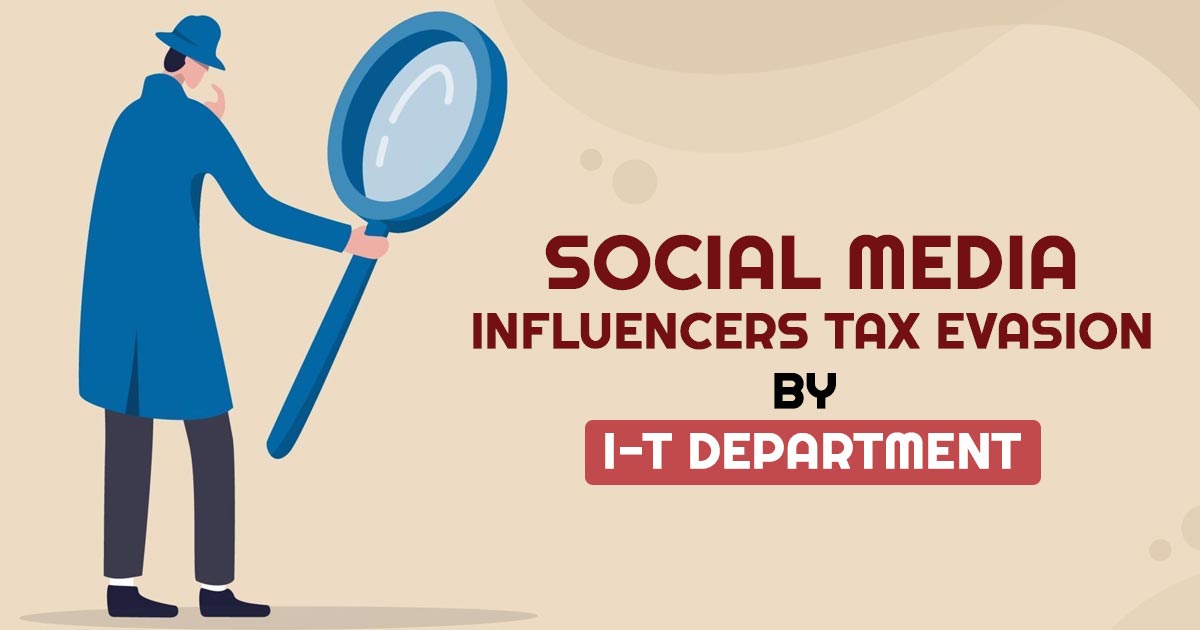
The Income Tax Department has introduced an investigation operation against particular social media influencers and content creators who make content using various platforms such as YouTube and Instagram. The move was launched because they are not disclosing their income and profits corresponding to their earnings, according to the sources.
The department started taking action last week after it found around 10 YouTubers and other social media influencers, in which most of them young artists and actors, in Kerala.
As per the sources, the department carried out an investigation with the help of “data analytics” and came to know that these social media influencers and online content creators are making considerable amounts of money but they are not showing or under-reporting their income tax returns (ITRs), largely because of ignorance of tax laws.
These influencers hold a large audience base as their followers. They entertain, inform, and educate their followers and have the power to instil ideas in their minds.
These social media influencers and online content creators lead them to purchase a product, service, brand, or experience using their knowledge, position, or relationship with their audience.
The sources said that the tax agency dealt “very gently” with the influencers searched in Kerala throughout the process of collecting evidence and even when recording their statements.
Read also: Alert! Heavy Penalties on Such Types of Tax-Evading Methods
Additionally, notices were sent to these people as part of the investigation so that their “exact tax liability” could be ascertained, they added.
According to the sources, the department is also closely monitoring the social media activity of some celebrities and has brought similar actions against additional social media influencers in other parts of the country.
As per the sources, during the search move, the tax department gathered essential information about online content creators and social media influencers. This includes information about their brand endorsements, both paid and unpaid promotions, expenses made through various financial methods like debit and credit cards, as well as their partnerships with social media platforms where they earn income by leveraging strategies that involve surpassing a specific threshold of social media engagements.
The tax department also utilised the tax deducted at source (TDS) database before initiating the search operation and sending out notices, as reported by sources.
Taking into account the benefits received in a business or profession, the Central Board of Direct Taxes (CBDT), the governing body of the Income Tax (I-T) department, brought new regulations on TDS last year. These regulations specify that such perks can be in the form of cash or in kind, or a combination of both.
In the Income Tax Act, a new Section 194R was brought as part of the Budget 2022–23. This section mandates a 10% TDS deduction from any benefits or perks provided to residents that exceed Rs 20,000 annually and are associated with their trade or profession at their place of residence.








